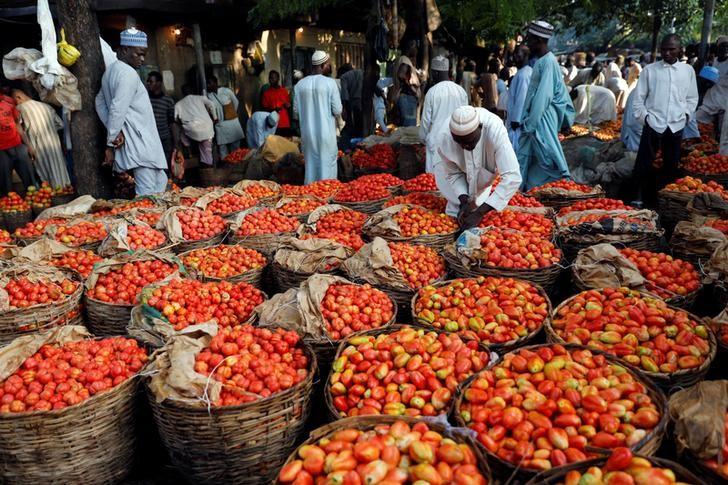Nigeria’s inflation numbers continued on the upward spiral in the month of January according to new data from the National Bureau of Statistics NBS on Tuesday, showing the Consumer Price Index jumped from 15.75% in December 2020 to 16.47% at the end of January 2021.
The 17th consecutive uptrend in inflation was driven by the sustained growth in food inflation, which soared to 20.57%, from 19.56% in the preceding month, owing to the same old reasons, particularly the heightened insecurity across the country, following which farmers have been unable to access their farms to harvest their produce.
The growth in food inflation, the NBS said, followed the increase in prices of bread and cereals, potatoes, yam and other tubers, meat, fruits, vegetable, fish and oils and fats
Core Inflation at 11.85% in Jan 2021 from 11.37% in Dec 2020; urban inflation rate climbed 17.03% up (year-on-year) in January 2021, from 16.33% in December 2020, while the rural inflation rate increased by 15.92% in January 2021 from 15.2% in the preceding month.
In the period under review, all items inflation on Year-on-Year basis was highest in Kogi, where it stood at 21.38%; Oyo, 20.17%; and Bauchi, 19.52%; while Cross River recorded the slowest rise in headline inflation of 12.22%; ahead of Abuja’s 12.96% and Kwara, 13.96%.
Month-on-Month however, January 2021 all items inflation peaked in Oyo at 4.28%; followed by Ebonyi, 3.95%; and Lagos, 3.33%; “while Abuja, Edo and Cross River recorded price deflation or negative inflation (general decrease in the general price level of food or a negative food inflation rate)” within the period.
According to the NBS in its report, “in analysing price movements under this section, note that the CPI is weighted by consumption expenditure patterns which differ across states. Accordingly, the weight assigned to a particular food or non-food item may differ from state to state making interstate comparisons of consumption basket inadvisable and potentially misleading.
YoY, food inflation in January 2021, was at its peak in Kogi which recorded 26.64%; Oyo, 23.69%; and River, 23.49%; while food prices grew at an average rate of 16.37% in Bauchi representing the slowest rise; behind Abuja’s 16.73%; and Ondo, 17.20%.
On a MoM basis, Oyo had the highest growth rate of 4.47%; ahead of Lagos’ 3.86%; and River 3.11%, just as the slowest rise was recorded in Edo, which recorded price deflation or negative inflation (general decrease in the general price level of food or a negative food inflation rate). Bayelsa posted 0.13% rise, and while Akwa Ibom recorded 0.25%.








